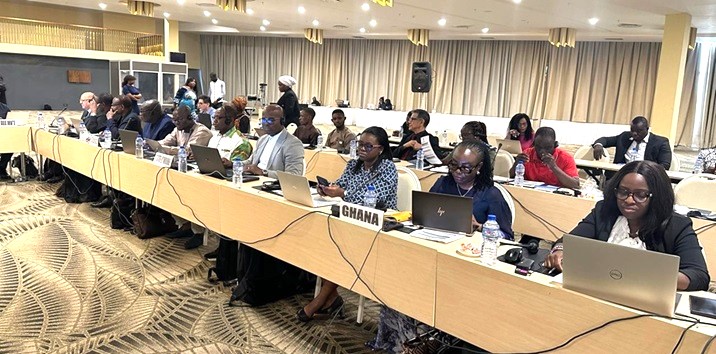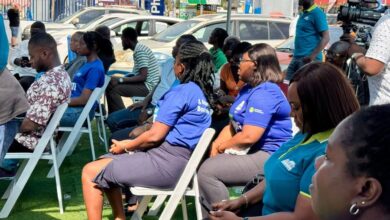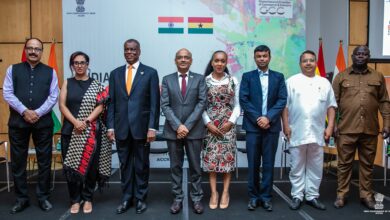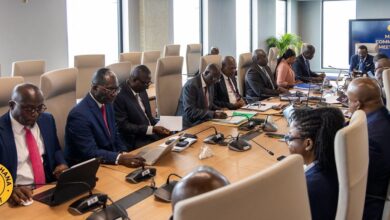ECOWAS Commission reviews draft report on trade and transport facilitation for Abidjan-Lagos project

The ECOWAS Commission has completed a three-day technical review of a draft interim report for the Trade and Transport Facilitation Study of the Abidjan-Lagos Corridor Highway Development Project. The commission has instructed the consultants to incorporate all recommendations and resubmit the report for further evaluation and subsequent validation.
The workshop brought together representatives from member states across various sectors, including Roads and Highways, Immigration, Free Movement, Customs, Trade, and international stakeholders and development partners interested in the free movement of goods, services, people, and transport. The goal was to establish a framework that ensures smooth trade, movement of people, vehicles, and services along the new highway without unnecessary impediments.
Consultants commissioned by ECOWAS presented their interim report, which highlighted current issues hampering trade and transport on the corridor and made recommendations to alleviate these challenges once the highway is constructed.
Acting Director of Transport for ECOWAS, Mr. Chris Appiah, explained, “When the Heads of State signed the agreement, they established a technical committee comprising project directors from all five Corridor Member Countries and colleagues from Trade, Customs, Immigration, and Free Movement directorates of ECOWAS, as well as development partners, to ensure the consultant’s recommendations are practical and align with international best practices.”
Mr. Albert Siaw-Boateng, Director of Free Movement of Persons and Migration for ECOWAS, underscored the project’s significance for facilitating free movement within ECOWAS. His directorate is preparing measures such as the “Interstate Passenger” and the proposed “ECOVISA” to enhance movement and trade along the corridor.
“The completion of the corridor highway project will enable us to implement the Regional Mechanism and complete the ECOVISA space, allowing both community citizens and third-country migrants to engage in business,” Mr. Siaw-Boateng said.
Mr. Kwasi Winfred Dodzih, Executive Director of ECOWAS Brown Card, emphasized the need for a harmonized insurance scheme to protect lives and properties along the corridor. “Given the high rate of accidents, there is a serious need for an insurance scheme to safeguard properties and lives of our citizens,” he stated.
Participants from public and private institutions, including officials from the ECOWAS Commission, Ministries, and Departments of the five Corridor Member States, Trade Mark Africa, and ECOWAS Brown Card, provided feedback on the interim study conducted by IDEA Consult. They emphasized the importance of implementing best international trade facilitation practices on the corridor.
The consultants are expected to address the questions and comments raised during the review workshop and resubmit the report. Once validated, it will be implemented alongside the detailed design of the Abidjan-Lagos Corridor Development Highway, which is being finalized by the ECOWAS Transport Directorate.
“The ECOWAS Commission expects that by the time the detailed design study is ready, the trade and transport facilitation framework will also be completed, guiding the commencement of construction and operationalization of the highway project,” Mr. Appiah explained.
Participants also visited the Autonomous Port of Lome to understand its operations and update port authorities on the project’s progress.
The Abidjan-Lagos Corridor Highway Development Project aims to construct a 6-lane dual carriage highway from Abidjan in Cote d’Ivoire through Ghana, Togo, and Benin to Lagos in Nigeria. The five Corridor Countries have entrusted ECOWAS as the implementing agency to design, procure, finance, and construct the highway. A supra-national Corridor Authority, the Abidjan-Lagos Corridor Management Authority (ALCOMA), will take over the project before the end of 2024.
The African Development Bank (AfDB), European Union, and ECOWAS Commission are financing the technical studies for this regional flagship infrastructure project, with additional contributions from the Corridor Countries.




